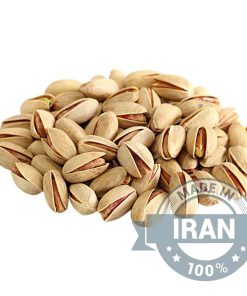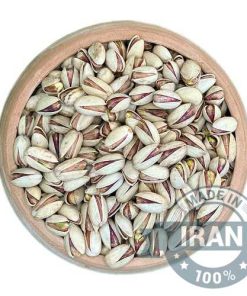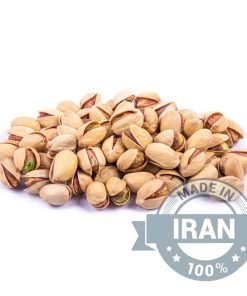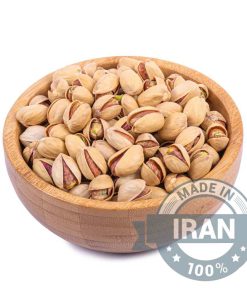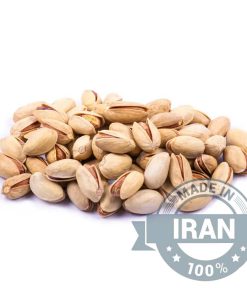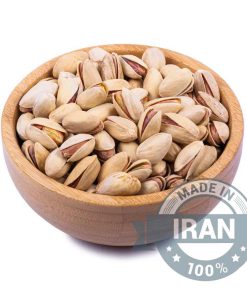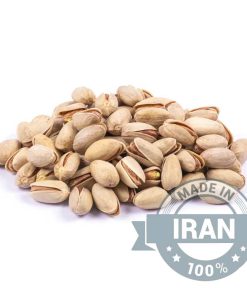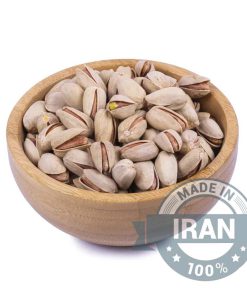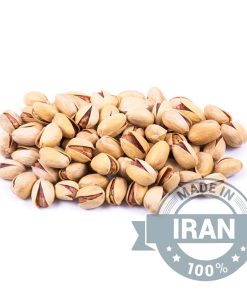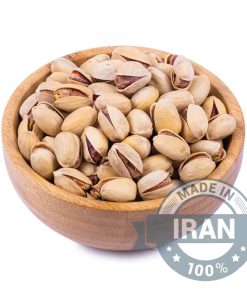Pistachios: Premium pistachios known for their exceptional flavor and quality.
Pistachios: A Taste of Iran
Iranian Pistachios: A Nut Above the Rest
Our Pistachio Varieties:
Why Choose Our Iranian Pistachios?
Buy Direct from Iranian Growers
1. What are pistachios?
Pistachios are small, edible seeds that come from the pistachio tree. They are often referred to as nuts, though botanically they are drupes.
2. Where do pistachios come from?
Pistachios are native to the Middle East, particularly Iran. Today, Iran, the United States, and Turkey are the world's largest producers.
3. What do pistachios taste like?
Pistachios have a sweet, nutty flavor with a hint of saltiness.
4. What are the health benefits of pistachios?
Pistachios are packed with nutrients and offer numerous health benefits, including heart health, weight management, and improved eye health.
5. How are pistachios grown?
Pistachio trees require a long growing season and a specific climate to produce nuts. They are typically grown in dry, arid regions.
6. How do you open a pistachio?
To open a pistachio, you can crack the shell using a nutcracker or your teeth.
7. Can you eat pistachio shells?
No, pistachio shells are hard and inedible.
8. Are pistachios gluten-free?
Yes, pistachios are naturally gluten-free.
9. How long do pistachios last?
Pistachios can stay fresh for several months when stored in an airtight container in a cool, dry place.
10. What are some ways to use pistachios?
Pistachios can be eaten as a snack, added to salads, used in baking, or incorporated into various dishes.
11. Are pistachios a good source of protein?
Yes, pistachios are a good source of plant-based protein.
12. Can people with nut allergies eat pistachios?
If you have a nut allergy, it's important to consult with an allergist before consuming pistachios, as cross-reactivity is possible.
13. What is the difference between pistachios and almonds? (
Pistachios and almonds are both nuts, but they have different shapes, flavors, and nutritional profiles. Pistachios are typically longer and have a sweeter flavor than almonds.
14. Are pistachios fattening?
While pistachios are high in calories, they are also a good source of healthy fats and fiber, which can help with weight management.
15. Can I eat pistachios while pregnant?
Yes, pistachios are generally safe to eat during pregnancy and can provide essential nutrients.
16. Are pistachios good for diabetics?
Pistachios can be part of a healthy diet for people with diabetes when consumed in moderation. They have a low glycemic index.
17. Can I give pistachios to my baby?
It's generally recommended to wait until a baby is at least one year old before introducing them to nuts, including pistachios, due to the risk of choking.
18. Where can I buy pistachios?
You can buy pistachios at grocery stores, specialty food stores, and online retailers.
19. How do I roast pistachios?
To roast pistachios, spread them on a baking sheet and roast in a preheated oven until golden brown.
20. What is the difference between in-shell and shelled pistachios?
In-shell pistachios have their shells intact, while shelled pistachios have had their shells removed.
21. Can I freeze pistachios?
Yes, you can freeze pistachios to extend their shelf life.
22. What is the nutritional value of pistachios?
Pistachios are a good source of protein, fiber, healthy fats, and various vitamins and minerals.
23. Are pistachios vegan?
Yes, pistachios are vegan as they are derived from plants and do not contain any animal products.
24. Can I grow a pistachio tree in my backyard?
While it's possible to grow a pistachio tree in your backyard, it requires a specific climate and a lot of patience, as pistachio trees take many years to bear fruit.
25. What is the difference between Iranian and American pistachios?
Iranian and American pistachios can have slight variations in taste, size, and appearance. However, both are high-quality options.

